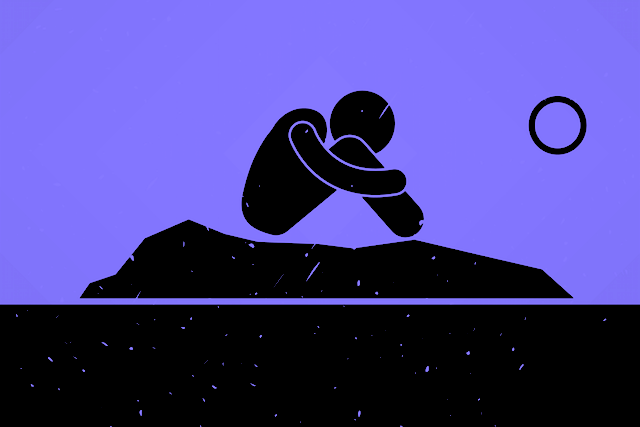Our daughter, Charlotte Byrd Donlon writes book reviews for a coffee and book shop in Birmingham, AL. This one resonates with me. I have a picture of myself with 4 other girls when we were all about 12 or 13. The look on my face says it all to me….although I am with them I do not belong with them. I struggled with forming close and lasting friendships for most of 30 years due to unrealistic expectations, high demands, fear of being known too well by others…..all evidence of my inability to be truly “happily at home” with myself….and overly sensitive about how I was viewed by others. Thank God, I finally broke out of that. Erik Eriksson’s stages of human development lists “identity” as an adolescent task of development and “intimacy” as a young adult task. In our society today many of us struggle with both the development of our sense of identity and true emotional and spiritual intimacy tasks for quite a while…into our 30’s or 40’s. Whether it is a cultural burden we have to outgrow or whether it is God’s special claim on the lives of some of us….keeping us from the comfort and satisfaction of emotionally and spiritually close human relationships until after we have, in our pain and isolation, found our way to his side and given our hand into his for the security and affection for which we yearn.
I tend to think that some of us are born with a bigger “space’ within our souls that God has carved out for himself. Until that space is filled with all of God that he has intended for us to know and enjoy, we will always feel something of a void, hungering and thirsting for “more”. Unfortunately, many of us spend a lot of years and energy trying to fill it with the things of the world and, like Solomon in Ecclesiastes, we find that it is all “vanity.” When, at last, we are filled to the brim and overflowing with that which God desires to give us of himself, there is contentment, peace, and satisfaction in life. There is no “right” or “wrong” capacity…..there is simply that which God has purposed and for which he has created each of us. As long as one is living into that capacity, it is just the right size. Like the little girl in the story of the Three Bears, some of us have to try out every size of every resource to find the one that is “just right.” Others seem able to contentedly accept any measure that is available with gratitude.
Brené Brown’s Braving the Wilderness: The Quest for True Belonging and the Courage to Stand Alone
During an appointment with the first therapist I ever met with, I asked him if there’s something wrong with me because I’ve never had a best friend who lasted more than a couple of years. He said, “No. Of course not. Plenty of people don’t have a lifelong best friend. We grow and change so much over time, and it’s normal for relationships to come and go.” During another appointment, we talked about loneliness. And that’s when he broke the news to me: “Some people have a greater sense of loneliness and aloneness. You are one of those people. It’s a blessing and it’s a curse.”
Now, more than 13 years after those appointments, I’m a lot less insecure about my friendships. I’m also way more comfortable in my loneliness and aloneness. And while I’ve been managing pretty well in these areas, Brown’s book and her latest research are nourishment for my mind and soul.
Early on in Braving the Wilderness, Brené Brown defines “true belonging.” She writes:
True belonging is the spiritual practice of believing in and belonging to yourself so deeply that you can share your most authentic self with the world and find sacredness in both being a part of something and standing alone in the wilderness. True belonging doesn’t require you to change who you are; it requires you to be who you are.
Brown unpacks this definition throughout the rest of the book. She invites readers to hold onto the idea of paradox while exploring what “true belonging” means in their lives.
Every chapter of Braving the Wilderness holds A-ha moments that speak to situations I face and think about often. She offers helpful information to help me answer certain questions that have been rattling around in my head. Some of those questions she addresses are:
How do I navigate the current political climate without isolating friends and family and neighbors?
How do I parent children who seem to have inherited my blessing/curse my therapist told me about?
How do I hold space for others without losing myself?
How do I engage social media in a healthy way?
What are the best ways to offer others love, belonging, and joy?
How do I stand in my desert places with courage?
Brown packs new research, new theories, and plenty of personal experiences and examples into Braving the Wilderness. I’ll continue to turn to, highlight, underline, and dog-ear these pages and read these words in the coming weeks, months, and years.
Charlotte lives in Homewood with her husband and their two children. She’s earning an MFA in creative writing from Seattle Pacific University, and she does freelance writing and copywriting. You can find her online at www.charlottedonlon.com and on Twitter at @charlottedonlon. You can sign up for her newsletter about books and writing here.
© 2018 Charlotte Donlon
![MPj04389070000[1]_phixr](http://disciplerofself.com/wp-content/uploads/2015/03/MPj043890700001_phixr.png)
